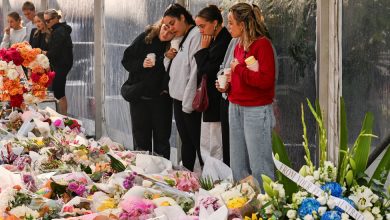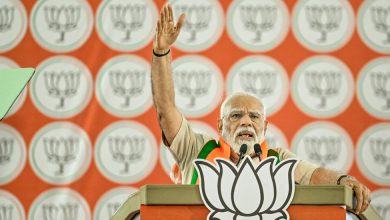‘Don’t Lose Hope’: Addressing the Breakdown of College Education

In my May 13 guest essay, “My College Students Are Not OK,” I described an apparent breakdown in college students’ learning after more than two years of disruption by Covid. “Universities need to help students rebuild their ability to learn,” I wrote. “And to do that, everyone involved — students, faculties, administrators and the public at large — must insist on in-person classes and high expectations for fall 2022 and beyond.”
More than a thousand readers responded to the essay in the comments on NYTimes.com, raising questions about how the learning breakdown fits into bigger issues like the cost of attending college, the value of a degree and what it means to show compassion.
A selection of those comments, edited for clarity and length, and my responses follow.
‘Students are throwing money at classes’
Sally, Virginia: I am a professor at a big state flagship university. This semester has been the worst ever in terms of student engagement, student performance and failure rates. This was after much serious in-class discussion of what studying entails and what exam expectations were, and the opportunity to take a makeup midterm. Many students frankly seem not to understand what school even is! Struggling students are throwing money at college classes for which they will rightly receive no credit. Even good students suffer from the breakdown of effective classrooms. Those who are passed through will end up as our engineers, doctors, politicians and accountants, and I cannot believe that their educations will have been equivalent to those who graduated even three years ago. It’s a crisis.
Jonathan Malesic: Because learning has been difficult in K-12 schools, too, the next several cohorts of college students might arrive less ready to learn than their predecessors did.
In-person classes are necessary but not sufficient to resolve the crisis. Melissa Walsh, a University of Texas at Arlington professor of biology and earth and environmental sciences, told me her department is introducing pre-course “boot camps” for first-year biology students, in anticipation of many students arriving underprepared. Some new students, she has found, had never done biology labs in high school.
The extra instruction will surely help, but it’s going to be more work for students and faculty members alike. “In the end,” Dr. Walsh said, “it’s worth it to get them where they need to be, so you don’t see this ripple effect where they’re behind in every course they take in college.”
Is college ‘just a series of meaningless tasks’?
Seigi, Orange County, Calif.: How do we fix this?
I graduated from a big state university in 2020, and so many lecture halls were filled with hundreds of students, which makes it almost impossible to feel that anyone cares about your education. I think many of my fellow students were already starting to feel like college, and school in general, was just a series of meaningless tasks they had to work through to earn a glorified piece of paper before they could go out into the real world. The pandemic and years of Zoom classes have only exacerbated this feeling.
Saving this generation of students will require a much greater commitment to funding and support than we have seen in this nation lately. Given the state of our politics, I’m not hopeful.
J.M.: I think most professors care about their students both academically and personally, and some manage to break through the anonymity of large classes and forge personal connections. That is certainly Dr. Walsh’s goal. “I want [students] to be successful in my course. I want them to learn and engage,” she told me. But with the mass absences of the past academic year, she said, “it’s been a struggle to do that.”
Colleges were only able to function at all early in the pandemic because faculty members and staff took on an unsustainable burden of extra work. To give students personal attention, faculty members need reasonable workloads, including smaller classes, which means universities need to hire more full-time faculty members.
To justify greater public spending, universities must convince the public that higher education is more than a pathway to students’ individual economic success. College is at least partly a public good, because well-educated and highly-skilled people enrich society both economically and culturally. Student loan forgiveness is one way to acknowledge this fact.
‘Reality check: the pandemic isn’t over’
Steven McCornack, East Lansing, Mich.: I wonder whether the author has actually talked with his students about why they are disengaged and absent. I don’t presume to know about his students, but mine were absent because they were working two to three jobs to cover their family’s expenses, because their parents were unemployed, disabled or dead. My students were Zooming from hospital bedsides, with dying grandparents; being full-time caregivers with family members in hospices, or in emergency rooms awaiting their own admission for low oxygen levels. Reality check: The pandemic isn’t over! Why do we persist in treating all that we currently are experiencing with denialism, or view the traumas students are still experiencing as something incidental from the past, that they need to now get over? More importantly, how will increasing standards address student PTSD, grief, illness and support of family members?
J.M.: As important as higher education is, some things are more important. People facing health and family crises or who need to work long hours might not have the spare time and focus to be full-time students. They might be better able to care for themselves and others if they take fewer classes, or don’t enroll at all, until they are in position to get the most out of college: not just a degree, but an education.
But the economic value of a degree can put pressure on students to stay enrolled even when other needs are more urgent; another year without graduating is also another year with lower average earnings. In addition, universities often make financial aid contingent on studying full time; federal loan programs require half-time enrollment. These rules may need to change so more students can learn effectively while advancing toward a degree at a manageable pace. Universal preschool and affordable child care would also help students who are parents.
‘My son has made no close friends at college’
Julie, Rhode Island: Parent here, of a student who just finished sophomore year. A lot of these kids are disengaged because they were completely isolated their freshman year. My son has made no close friends at college. His first year there, classes were online, the dining halls were closed, there were no in-person extracurriculars, dorm lounges were closed and students were not allowed to have other students in their rooms. He had little opportunity to get to know other students.
When the college returned to “normal” this year, they overlooked the fact that they have a sophomore class of isolated, anxious, depressed kids. The freshmen got the usual orientation. Sophomores were expected to just adapt.
J.M.: The pandemic severed countless human connections, quietly causing untold harm. Isolation is a major obstacle to the purpose of college, because “the transformative ends of higher education” depend on relationships, including peer relationships, as the researchers Peter Felton and Leo M. Lambert show in their book, “Relationship-Rich Education.”
Gathering people in the same place obviously risks viral transmission, but it also permits modes of learning and mentoring that are hard to replicate any other way. Tyler Burkhardt, a student at the University of Texas at Dallas (where my wife teaches and where I taught last year), told me that when he was taking remote classes, he missed the spontaneous interactions with his peers. Online, he said, “there’s not that network of people to continue interacting with after the class to keep that knowledge fresh and keep applying it.” As a result, he said, he retained less of what he’d learned.
‘Learn as much as you can, and take as much pleasure in it as you can.’
Molly, Chicago: As a college student at a private institution, our course loads are rigorous and the academics demand discipline. We are also expected to get internships and jobs to launch our careers. We are being asked to do all of this at a time of mass trauma. This is on top of the mismanagement of Covid cases currently going on at our school.
In many ways, I have become a far more disciplined student than before the pandemic, but I have to be in order to achieve at my pre-pandemic level. Many of my friends talk about having a much worse memory than before the pandemic and many report burnout. Some people are far too dismissive of the experiences that college students currently face. I would ask for some more compassion.
J.M.: Nothing has been easy in the last two years: learning, teaching, parenting, working. College can seem trivial in such times. What’s the point of analyzing lines of Milton when so many are dying? I wish it were possible for my students to see the 50 or 80 minutes we spend together as a refuge. The world’s pain and fear are not going away, but here we are, a community of learners, figuring out things that have mattered to people for ages.
Molly, don’t lose hope. Learn as much as you can, and take as much pleasure in it as you can. The fact is, our society is going to need people like you and your peers who are capable, compassionate and disciplined. Addressing the long-term aftermath of the pandemic, not to mention numerous other problems, will require all the brainpower and commitment we can muster. No, it won’t be easy to finish your degree in the current conditions, and things are unlikely to get easier after you graduate. But you’re now in a position to become someone who will do much good for the world. I know you can.
Jonathan Malesic is the author of “The End of Burnout.” He teaches first-year writing at Southern Methodist University and lives in Dallas.
The Times is committed to publishing a diversity of letters to the editor. We’d like to hear what you think about this or any of our articles. Here are some tips. And here’s our email: [email protected].
Follow The New York Times Opinion section on Facebook, Twitter (@NYTopinion) and Instagram.



